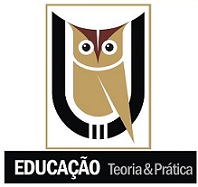DAS IMAGENS QUE HABITAM UM PENSAMENTO DE CURRÍCULO-PESQUISA
DOI:
https://doi.org/10.18675/1981-8106.vol28.n59.p682-698Palavras-chave:
Currículo, Imagens do Pensamento, CriaçãoResumo
Toma-se inicialmente a noção de imagem do pensamento a partir do filósofo francês, Gilles Deleuze. E a partir disso, busca-se rastrear, ainda que brevemente, tal conceito em suas obras, sem nenhuma pretensão de esgotar a aproximação com o referido conceito, até porque essa noção percorre, em alguma medida, toda a filosofia deleuziana. O que interessa aqui, é compreender como esse conceito opera, quais seus pressupostos e movimentos. Em um segundo momento, a tentativa é de imaginar um pensamento de currículo-pesquisa apartado do pensamento da representação ou de uma imagem dogmática do pensamento, tal como nomeia Deleuze (1976). Novamente não há uma pretensão de fazer um agenciamento de tais noções, mas tomar o conceito de imagem do pensamento, tão caro a Deleuze, para pensar um currículo capaz de produzir desdobramentos no pensamento, engendrando novas e outras imagens. Pretende-se, assim, tensionar as imagens de currículo que povoam as ideias, preenchem o pensamento, para, por outra via, reivindicar um pensamento de currículo sem modelo ou forma. Nesse meio, traz-se outros autores para pensar, tais como Benjamin (2007, 2012a, 2012b), Calvino (2010), entre outros. Por fim, busca-se arremessar o currículo a um plano de pensamento em que linhas de escrita, entrecruzamentos de conceitos, intersecções de práticas se tornem possíveis, entremeio a uma vida de pesquisa. O presente ensaio é escrito em meio a um estudo específico de um grupo de pesquisa, cujo objetivo é aproximar os movimentos do pensamento das discussões curriculares. Palavras-chave: Currículo. Imagens do Pensamento. Criação.Arquivos adicionais
Publicado
Como Citar
Edição
Seção
Licença
Os Autores que publicam nessa revista concordam com os seguintes termos:
a) Os autores cedem os direitos autorais à revista, com o trabalho simultaneamente licenciado sob a Creative Commons Attribution License que permite o compartilhamento do trabalho com reconhecimento da sua autoria e publicação nesta revista.
b) A política adotada pela Comissão Editorial é a de ceder os direitos autorais somente após um período de 30 meses da data de publicação do artigo. Transcorrido esse tempo, os autores interessados em publicar o mesmo texto em outra obra devem encaminhar uma carta à Comissão Editorial solicitando a liberação de cessão dos direitos autorais e aguardar resposta.
c) Esta revista proporciona acesso público a todo o seu conteúdo, uma vez que isso permite uma maior visibilidade e alcance dos artigos e resenhas publicados. Para maiores informações sobre esta abordagem, visite Public Knowledge Project, projeto que desenvolveu este sistema para melhorar a qualidade acadêmica e pública da pesquisa, distribuindo o OJS assim como outros softwares de apoio ao sistema de publicação de acesso público a fontes acadêmicas. Os nomes e endereços de e-mail neste site serão usados exclusivamente para os propósitos da revista, não estando disponíveis para outros fins. This journal provides open any other party  Esta obra está licenciada sob uma Licença Creative Commons
Esta obra está licenciada sob uma Licença Creative Commons











